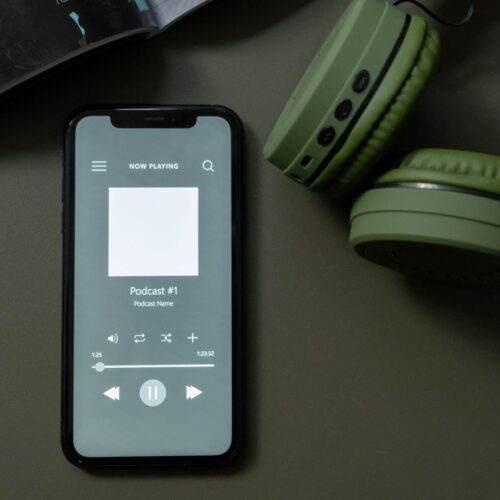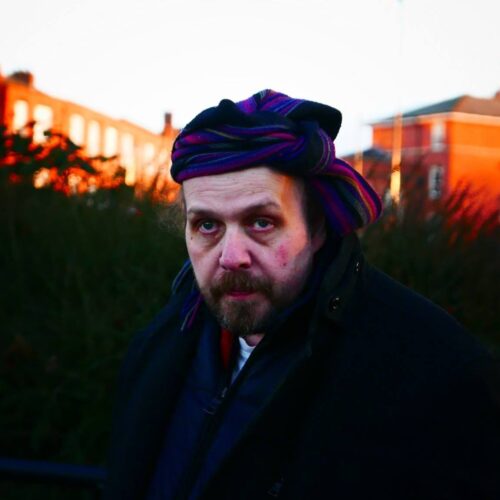
Unmusical history
The musical world is inclined to venerate Mozart rather too much, I would suggest. It was not until he was 18 that he wrote the first of the very few accomplished symphonies of his lifetime (No 29, K201 in A) and that was his 39th piece in that form – ten are unnumbered. 
Throughout that time he had considerable help from his father who would polish the early attempts. Even that occasion in the Sistine chapel during which he wrote down Allegri’s Miserere – a repetitive piece anyway – there were corrections in his father’s handwriting. Most of that 29th symphony’s predecessors are the experimental compositions of one who is learning a trade by imitation and under a considerable degree of social pressure that allowed hardly any time for developing his undoubted talents beyond the purely mechanical stages.
Why any serious musician should even bother to perform most of those early symphonies – the first reputed to be ‘written’ at the age of seven – is beyond understanding! After all, Mendelssohn demonstrated far broader imaginative and technical command by the age of 15, having achieved a series of very accomplished symphonies for strings, the amazingly ingenious String Octet when he was 16, and the overture to A Midsummer Night’s Dream the following year.
However, there are about ten of Mozart’s symphonies that are well worth hearing, and among those are works of the most remarkable genius – a word too loosely used, but in this case utterly justified. But it could also be argued that Mozart was responsible for the ‘death’ of a number of other composers whose reputations could be far greater now had he not lived. Of course, he couldn’t help living, but we shouldn’t regard his contemporaries as being less worth hearing.
Dittersdorf, a fellow Viennese composer, produced a huge quantity of music (yes, he did live to be 60!) that included 40 operas, 120 symphonies and 40 or more concertos – several for the violin on which instrument he was quite a virtuoso.
Another notable Mozart contemporary was Boccherini whose vast output of string chamber music, quintets, quartets and trios, could easily rival Mozart in inventive quality, technical accomplishment and delight, and yet history doesn’t allow them to be as world famous! Poor old Boccherini was no less talented because Mozart happened to live at the same time, but history suggests he must be an inferior composer. Examination of the music could prove that a far greater proportion of Boccherini’s music is the product of a more mature creative disposition than much of the child-like routine invention of the first half of Mozart’s life. But in the fewer pieces with which Mozart demonstrated his more exceptional talent at its best no one can compete.
The only worthy and acceptable rival at the time was Haydn, and he was a different kind of remarkable composer, exploring harmony rather than Mozart’s later extraordinary ability to explore themes and counterpoint.
It is only a pity that history – unmusical history – is to blame for who survives, and history, whilst being a faithful record of one possible journey through time, is fundamentally ‘stupidity after the event’.






“It was not until he was 18 that he wrote the first of the very few accomplished symphonies of his lifetime..” tch! tch!
A late developer evidently 🙂
Ooo, a controversial one! Whilst a lot of Mozart’s symphonic output is quite remarkable, I must say I prefer a greater proportion of Haydn’s work. Sacrilege perhaps, but I find it more pleasing, especially rhythmically.
It is indeed sad that history is often written by the winner, but there’s still a huge amount of work from relatively unknown composers available to be championed. Suggestions welcome!
Coming back to Mozart, I was never a fan of his piano works at all, in fact quite the reverse, until I happened to have some time with an instrumental teacher who really knew the music and how it might be properly played. It completely changed things and opened my eyes and mind. What once seemed almost trite was transformed, certainly at least from a player’s perspective anyway!
I remember exactly where I was when I first heard the Jupiter Symphony. I have also had the privilege of singing in and conducting the Requiem and singing in the great C Minor Mass. It doesn’t get a lot better than that. Opera fans might also like to weigh in.
Chris is right that it is all in the playing. I’m no accompanist on the piano but I practice a great deal if I have to play Mozart.
I quite agree that there are many more excellent composers and beautiful music ignored by history. I’m also with Chris on the piano sonatas – the instruments were quite different compared with our modern pianos, which does throw a different light on things. However, Mozart does have a special appeal where I’m concerned, but of course, just because history deems some-one a ‘giant’ doesn’t mean that every single thing he wrote is of huge merit. I do appreciate Dittersdorf and Boccherini greatly. Listen to latter’s cello concertos.
For Piano there can’t be many to equal Alkan – the range, the scale is probably unmatched by anyone before or since. Started as a similar age as Mozart when into the Paris conservatoire at 6 and lived until old age – alright a bit of a recluse at the end when one obit ran “Charles-Valentin Alkan has jet died. It was necessary for him to die in order to suspect his existence”. His music lives on though.
I agree Felix Mendelssohn is probably a much underrated composer and early achiever, I would also mention his wonderfully exuberant violin concerto composed I think when he was 14.
It seems to me there are two Mozarts, the child prodigy and the mature composer, these personas are too often confused. If he had died at 16 then he would now be remembered mainly as a historical cusiousity, it is on his work as a mature man – the last great symphonies, the great operas – that his reputation mainly rests. Also the astonishing moments of grace and charm one suddenly comes across in his lesser works.
I think the mistake many people make is to believe that he achieved what he did as a result of being a child prodigy. I tend to agree with Patric that the reverse may be true, his childhood may well have hindered his growth as a serious composer.
But no, I don’t think that he is overrated. I think that, considering the genuis of his later works, the musical world can only guess at what we have been denied by his early death.
‘Delight’ in pieces of music can fade pretty quickly even if they are inventive and technically accomplished.
I find my delight in a good piece of Mozart always renews itself with every encounter, probably because a deepening knowledge brings into awareness the characteristics that are harder to appreciate initially, for example formal balance.
With Dittersdorf and Boccherini I have often very much enjoyed a movement because of its character, its contrasts and its playability, but have never been able to return to it time after time with renewed enthusiasm.
I think I diagree with the author I would say that with the Salzburg Symphonies Mozart wrote symphonies worth hearing. Especially No 20 K133 in D Major, I do prefer early music performances of these works such as those by Christopher Hogwood or Trevor Pinnock indeed it was hearing Christopher Hogwoods rendition back in the early 1980’s that made me look at these works
i agree that much of early Mozart is not terribly interesting. His early operas are rather boring and much instrumental work is somewhat bland. Mozart comes into his own with his great comic operas, his later string quintets (something is lacking in his string quartets – they are too long, too repetitive and they don’t have Haydn’s wit and sparkle),his great C Minor Mass and his last four symphonies. It is easy to forget that Haydn was regarded as the greatest composed of his age: it is only in recent years that we can appreciate the true scale and depth of Haydn’s music. Haydn is now much more recorded and performed than he was. Haydn was neglected in the 19th century because he did not fit the Romantic view of the ‘struggling composer’ who battled ill-health and poverty. Haydn had a patron for 50 years, earned a lot of money and lived to a ripe old age.
As a composer who was doing his PhD in the early 1990’s whenever I put the radio on in 1991 all that was ever on the channels was Mozart, Mozart, and yet more Mozart. At the time I was beginning to dismiss much of the great music pre 1870 as being “old hat” and of no importance to me as a composer of new exciting music. This was how I thought at the time and Mozart was the arch-enemy in all this. Hyped to the top and beyond almost as some demi-god from another world. Nothing but Mozart can drive anyone insane with hate of the musical fingerprints that made his music so distinct as well as the stylistic gestures of that period. For a good few years I could not listen to Mozart without squirming and wriggling uncomfortably. We had Schaffer’s “Amadeus” to annoy us even further. I had to perform the two Flute Concerto’s by him endlessley. Enough was ENOUGH!
My life became a Mozart free zone. That was until I had a performance of a work in Salzburg a few years ago. I did all the usual tourist trap things, including the dreaded “Sound of Music” but while there I attended a concert that, to me unfortunately, contained a violin sonata by Mozart. For the first time in many years I listened with a fresh appreciation and admiration for Mozart as a composer. This has led me on to buying the complete works on CD and love many of them now. This has come about at my own pace by not having to listen incessantly to his music, and not to be brow beaten by musicologists thrusting down my throat just how wonderful he was. Mozart would probably have seen the funny side of it all.
Nowadays I have a greater appreciation of all his music and all his periods of composition. Not everything is great or even in some cases good but I take from his work what I like and want and enjoy.Whether it be a good tune, a clever or beautiful harmonic shift or an exciting aria. At least now I can accept him on my terms.